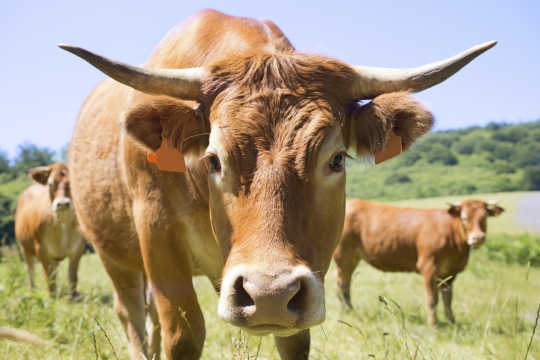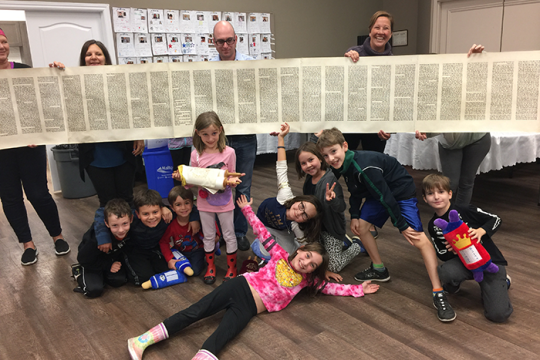
After an 18-month battle with prostate cancer, my 11-year-old cocker spaniel, Teddy, died last September. Immediately before he was euthanized, my wife and I recited a prayer that I wrote. We placed our hands on his head as if he was our child, and tears flowed freely as we read the prayer.
The grief I have experienced since then is real, and some days my heart feels more broken than others. I have seen Teddy in my dreams, disappointed when I awake because I know I won’t ever again hold him or hear his collar jingle. Sometimes, his memory alone isn’t enough to comfort me.
Judaism values the compassionate treatment of animals, but stresses that their souls are not like ours. Our souls can become transcendent and one with God; animals’ souls die when they take their last breath. For this reason, it is inappropriate for mourning practices for our pets to mirror those for people. Likewise, it is taboo to equate our relationships with our pets to those we have with people.
Yet, pet owners can easily understand the intense bonds we form with our furry friends. Because they offer us companionship, loyalty, respect, trust, and unconditional love, we often compare our relationships with them to our relationships with people. Our connections are so strong it is as if our souls are intertwined. And, when a pet dies, the sadness and loss we feel pierces the depths of our being.
Nonetheless, when Teddy died, I did not sit or light a . I did not wear a kriyah ribbon, or cover the mirrors in my home. I understand the distinction between pets and human beings – and I recognize the many ways our pets are not like us.
At the same time, there are many ways our pets are like us. They look to us for comfort and protection, express a wide range of emotions, seek approval from authority figures, struggle with change and transition, and can learn from their mistakes. Because animals are created by God, perhaps they, too, contain a spark of divinity within.
During times of grief and mourning, we tend to look to our tradition for guidance and comfort. Even though Judaism speaks about our relationship to animals, it does not explore relationships with our pets. As such, Jewish tradition does not offer rituals for pet loss. Contemporary rituals and prayers have been developed to respond to the reality that the loss of a pet feels much like the loss of a family member. Still, reciting traditional prayers such as the Mourner’s Kaddish or are excluded from these rituals.
So, where in Judaism can we find comfort when we have lost a pet?
- As Rabbi Jack Reimer has written in New Prayers for the High Holy Days, “As long as we live, our loved ones, too, shall live, for they are now a part of us.” These well-known words remind us that the legacy of our loved ones – including our pets – is now in our hands, and it is our inherent responsibility to pass their legacy on to others. In this light, consider what your pet taught you that you can pass down to others.
- Although Jewish tradition asserts a hierarchy between animals and human beings, there is, nonetheless, this affirmation about God and all living things: Baruch atah Adonai, Borei et ha-kol. Blessed are You, Adonai, Creator of all things. In fact, when I ask my pre-school students where they see God’s presence, they suggest it is visible in flowers, in clouds, and in the nice things people do for others. What if we could see God’s presence in our pets?
- Proverbs teaches “A righteous person knows the needs of his beast, but the compassion of the wicked is cruelty” (Proverbs 12:10). Deciding to euthanize a beloved pet can be an extremely difficult decision for pet owners. Grief may follow the guilt of ending a life. Yet, to alleviate a pet’s pain and understand the animal’s need to be free from suffering is a mark of righteousness. As Maimonides argues in , “If one encounters one’s friend on the road and sees that person’s animal is suffering from its burden, whether the burden is appropriate for the animal or is excessive, it is a mitzvah to remove this burden” (Hilkhot Rotzeah 13:1). Indeed, we are commanded to care for our animals, and in turn, they care for us.
- There are various online resources that reflect upon pet loss within a Jewish context, as well as rituals for the loss of a pet. Appearing on his website, To Bend Light, and in his newly published book, This Grateful Heart: Psalms and Prayers for a New Day, is liturgist Alden Solovy's beautiful prayer, “Passing of a Beloved Pet,” which recognizes the importance of pets in our lives, the reality of our grief when they die, and the difficulty of saying goodbye. In a similar vein, Ruth Chodrow wrote this ritual for pet loss, turning to the Torah and Psalms for words of solace, which originally appeared in CCAR Journal: The Reform Jewish Quarterly.
I will miss you always, Teddy. Run through the fields, chase the squirrels, and bark at the birds, dear friend. Eat toilet paper, give us kisses, and always look for us when you go on a hike. Save room for snuggles, wrestling with your toys, and belly rubs. Your memory is indeed a blessing, and your light continues to warm my soul.



